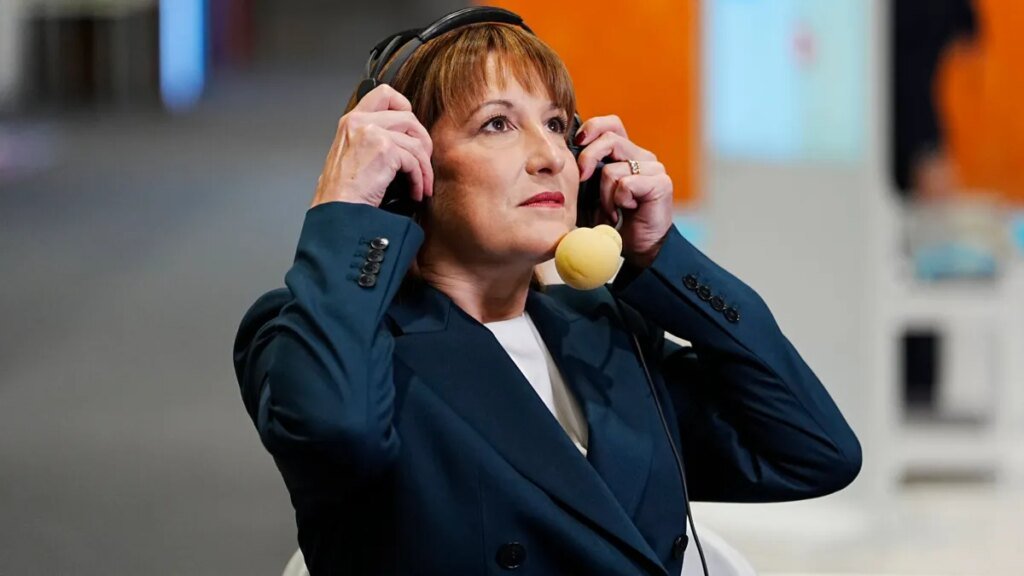The Chancellor has warned other ministers they must work on ways to bring down the cost of living
High-street shops could be in line for a tax discount as Rachel Reeves pushes to help with the cost of living in the upcoming Budget.
The Chancellor is expected to increase taxes by billions of pounds in order to balance the books, a move which could leave most people paying more of their income to the Exchequer.
But allies say she is also keen to bring down inflation so that workers’ earnings go further, with food and energy prices the Government’s top targets.
Reeves wrote to Cabinet colleagues in September warning they must “take action to reduce inflation and reduce the cost of living”, and met senior ministers last week to press them on their progress.
The Treasury is understood to be considering the introduction of discounted business rates for some firms in the retail, hospitality and leisure sectors so that they are less likely to put up their prices for customers.
An overhaul of the existing business rates system will be announced in the Budget, with lower bills for smaller companies and higher payments from the biggest firms such as Amazon, but the details have not yet been decided amid fierce lobbying from business.
Other likely priorities for the tax-and-spend package to be unveiled on 26 November include removing levies from energy bills, controlling the costs of other utilities bills, and targeting child poverty.
But many of these policies are set to involve changes to regulation rather than direct injections of cash. Theo Bertram, a former aide to Tony Blair and Gordon Brown who now runs the Social Market Foundation, told The i Paper: “She doesn’t have any money for giveaways in the way that you normally do, and any giveaways risk being seen as a gimmick.”
Controlling food prices
Food price inflation hit a high of 4.2 per cent in September, helping to drive the overall increase in prices across the economy. It then fell back this week, but industry insiders fear that costs will begin to rise again in the coming months.
With the Budget being delivered less than a month before Christmas, higher food bills are likely to be on many voters’ minds.
David Thomson of the Food and Drink Federation said: “We’ve all seen food and drink prices going up in recent months, and with costs like energy and ingredients relatively stable, this is being driven by government policy decisions.”
Other business groups have warned that the shake-up of business rates could raise prices in shops further if it goes wrong.
The Chancellor has promised to lower bills for high street shops permanently, while introducing higher charges for the 1 per cent of most valuable business premises. But at the same time, a temporary 40 per cent rates discount for retail, hospitality and leisure is due to expire.
The Treasury is working on a plan to ensure that most retailers do not end up paying more in rates, out of fear that they would pass on higher costs to their customers. But it is not yet clear how much money will be available for this.
Tina McKenzie of the Federation of Small Businesses warned: “The Chancellor must use the upcoming Budget to put support in place for small firms. The business rates system is ripe for an overhaul, to rebalance costs so a high-street shop’s rates bill isn’t higher than that paid by a massive out-of-town warehouse.”
Cutting energy bills
Multiple Labour MPs and left-of-centre think tanks have called for the Government to prioritise energy prices in its efforts to control the cost of living.
Sam Alvin of the IPPR think-tank said: “If you are speaking to the public about the cost of living, there is only one thing they will come back to you with and that is energy bills. If you are doing changes to the tax regime, then you can do things with energy bills at the same time. It’s practical, it’s affordable, it’s the most politically important.”
Energy Secretary Ed Miliband has said that in the long run, his investment in green forms of electricity such as wind and solar will help bring bills down by reducing reliance on imported fossil fuels, although some experts disagree.
In the short term, the two main options discussed for the Budget are removing VAT from bills – it is currently charged at a discounted rate of 5 per cent – and scrapping environmental and infrastructure levies currently applied to households’ electricity costs.
Cutting VAT from bills is now considered unlikely, The i Paper understands, but the idea of removing the levies remains on the table. The Resolution Foundation has calculated that this would knock 0.3 percentage points off consumer price inflation.
Other options for keeping bills down
The International Monetary Fund has argued that a key reason the UK’s inflation rate is higher than in other Western countries is because of “regulated prices” – costs that are set directly by the Government, including for some services provided by the private sector.
That suggests there may be scope to reduce bills, for example on water – although in that sector companies have been told they can charge more as long as they invest the proceeds in new infrastructure.
Bertram suggested that one way of helping the most vulnerable families would be introducing a nationwide social tariff for the water bills of low-income households. He said: “There are a number of social tariffs that we have at the moment, and some of those are underused and some of those the cost is borne not by taxpayers but by utilities providers.”
The ongoing nationalisation of the railways could also, in principle, provide scope for lower ticket prices – although any shortfall would probably need to be made up for by the Treasury.


